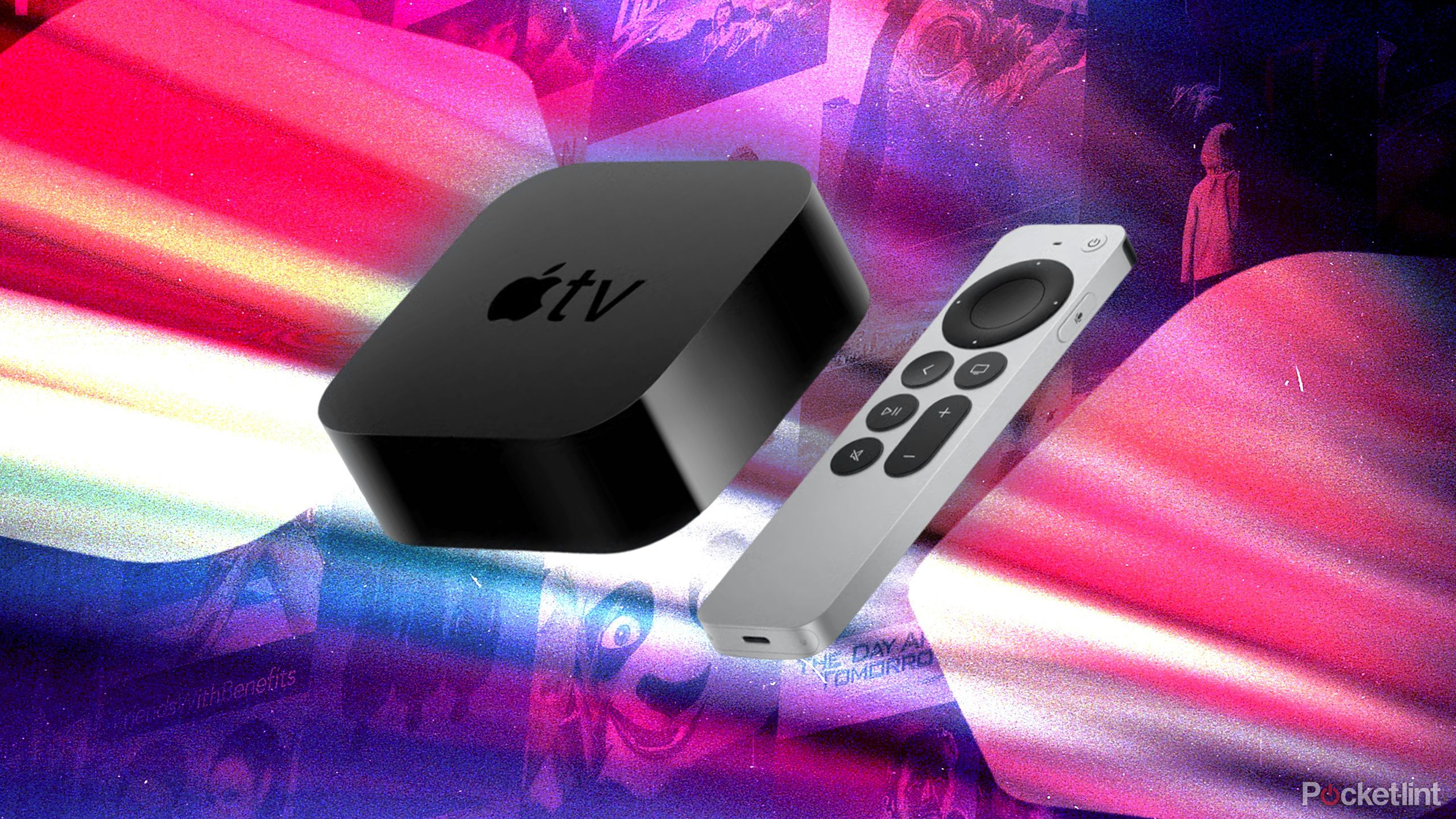Sonos Sub Mini review: All about that bass

Sonos first announced a subwoofer back in 2012, and while the device has been through a couple of generation upgrades – now in its third generation – the striking square design with its central cutout has remained largely the same.
The company then announced the Sonos Sub Mini, which as its name suggests, is a mini subwoofer. It doesn’t replace the original Sonos Sub, instead it sits alongside it, offering a cheaper alternative (£429 / $429) for those with some of the company’s smaller speakers or soundbars.
Is the Sonos Sub Mini the addition to your Sonos system you’ve been waiting for? Here’s our review.
Design
305 x 230mm (12 x 9.1-inches), 6.35kg (14lb)Cylindrical designBlack and white colour options
The Sonos Sub Mini takes some of the decade-old design traits from its larger brother in so much as it still opts for a cutout in the centre – called the Center Tunnel, rather than the solid and more traditional box design many subwoofers have. It puts its own stamp on things compared to the original though.
In place of the square design offered by the Sonos Sub, the Sub Mini opts for a cylindrical shape which makes it a real feature in the room. It stands out – but for the right reasons – with a contrasting middle cut out if you opt for the white model.
Like most of Sonos products, it comes in black and white colour options and it offers a matte finish. There are no controls on the Sub Mini – as there aren’t with the Sub – though you will find an Ethernet port and power port on the underside of the device, as well as a pairing button on the rear.
The top is completely flat with a Sonos logo, while the sides are rounded. That does mean you can’t slide the Sub Mini under a sofa or bed, like you can with the Sub which is flat on the top, bottom and sides, but as the Sub Mini is smaller and its design more striking, you might be happy to have it on display.
We had the Sub Mini in our bedroom upstairs, alongside the Sonos Beam (2nd Generation) and we love the statement it makes in terms of design. A traditional box subwoofer we would probably want to tuck away behind something, but the Sonos Sub Mini doesn’t look out of place on show.
Simple setup
Very easyFive minutes to completeWi-Fi and power required
As with all Sonos products, setup for the Sonos Sub Mini is very quick and simple. If you’re considering this product, you will already have Sonos speakers or components given it won’t work with other brands on its own, so you’ll be familiar with the Sonos app. For the Sub Mini, the recommended speakers are either the Sonos One, One SL or Sonos x IKEA Symfonisk speakers, or the Sonos Beam (1st or 2nd Gen) or Sonos Ray if you’re in the market for a soundbar.
If you have the Sonos Arc or the Sonos Five, it’s recommended you consider the original Sonos Sub instead.
To set up the Sonos Sub Mini, you’ll follow the same process as you would if you were adding another Sonos speaker to your system. You’ll need power and Wi-Fi, after which you’ll then need to open the Sonos app and tap on the settings cog in the right corner. Tapping on ‘System’ and pressing ‘Add Product’ will get you to where you need to be.
A step-by-step will follow, with the Sonos app recognising the Sub Mini within a couple of seconds. Be sure to make a note of the 8-digit PIN on the bottom of the Sub Mini – it’s pretty small so you might need glasses if you wear them or turn your phone into a magnifier if you are struggling to read it. You’ll need to enter the PIN as part of the set up process before pressing the pairing button.
Make sure you perform any software updates and add it to your TV if you are using it alongside a soundbar. All-in-all, the setup takes five minutes from start to finish so when we say quick, we mean quick.
Performance and sound
Less powerful hardware than Sonos SubCenter TunnelDual 6-inch force-cancelling woofers
The Sonos Sub Mini follows in the footsteps of its larger – and more powerful – sibling when it comes to its internal architecture. As we alluded to earlier, the Sub Mini is designed to be used with the smaller Sonos speakers, or within small to medium-sized rooms, rather than large living rooms or spaces.
The Center Tunnel is designed to efficiently move air to maximise bass. Internally, there are dual 6-inch force-cancelling woofers that face each other within a sealed cabinet to neutralise distortion while promising to deliver the low frequencies of the larger model.
Like the Sonos Sub (3rd Gen), the Sonos Sub Mini has Class-D digital amplifiers and a frequency response down to 25Hz, though it isn’t as powerful as the larger model at the higher end. The Sonos Sub definitely has more boom than the Sub Mini, especially at higher volumes so if you have an Arc soundbar, you’ll want the larger Sub for the full effect.
We paired up the Sonos Sub Mini with the Sonos Beam (2nd Generation) and found it delivered exactly what it’s there to do, bringing some added power and presence to the lower register in music and movies. The Beam (2nd Generation) is a very capable soundbar on its own, offering a decent bass weight without the Sub Mini, but the pairing did bring more depth to action scenes in movies, delivering more boom to explosions and impact to gunfire.
The opening scene in The Hitman’s Wife’s Bodyguard for example, had more body when the Sonos Sub Mini was on compared to when it was off, adding more dimension to the shooting scenes in particular. Meanwhile, the Live Aid concert at the end of Bohemian Rhapsody was much more powerful with the Sub Mini switched on, sending tingles up our arms.
Sometimes its input might seem subtle – particularly at more sensible listening volumes – and it’s only when you turn it off, that you notice just how much it was adding. That’s praise in itself. You don’t want a sub to stick out like a separate addition to your audio setup, you want it to blend seamlessly with what your soundbar or speaker is doing, leaving it to take ownership of those lower registers without fanfare. The Sub Mini does that with style.
The Sub Mini adds some extra punch to music too – especially bassier songs like Dolls by Bella Poarch that offer centre vocals as well, and Cozy by Beyonce, where the kick drum lands with greater impact with the Sub Mini. It never feels like that added weight is becoming heavy handed or cumbersome either – it’s authoritative but also controlled, with the agility to stick to a track’s bassline like glue, without creating an overly bloated sound or adding weight elsewhere.
Instead, the Sub Mini allows the paired speaker or soundbar to concentrate on the mid to high frequencies, while it handles the low end, offering more clarity overall. The result is a great experience across the board with no rattle or vibration, though we think it’s movies you’ll appreciate the Sub Mini’s input the most.
Sonos Sub Mini vs Sonos Sub: What’s the difference?
Good features
Trueplay tuningAutomatic equalisation
The Sonos Sub Mini comes with a range of features including Trueplay tuning so you can get the best sound from the Sub Mini for its placement, and automatically equalising audio to balance it with the paired speaker or soundbar.
The Sub Mini will increase volume accordingly in harmony with the Sonos component it is paired to and using the Sonos app, you can manage EQ levels, as well as loudness. You can also disable the Sub Mini so you can hear the difference between when it is on and when it is off – just in case you need justification for why you’ve bought it, or perhaps more likely, the neighbours have complained and you need to reduce the booming late at night.
There’s also a Phase Control feature in the Sonos app where you can choose between 0-degrees and 180-degrees. We left the Sub Mini on 0-degrees as it was positioned just below the Sonos Beam (2nd Gen), though if your sub is in a different part of the room to your soundbar or speaker, it’s worth playing with this setting to see if it helps them to integrate better. As we said, you want them to sound like they’re one unit working together, not separate.
It’s worth noting is that while the original Sonos Sub can be paired with up to two more Subs, the Sonos Sub Mini doesn’t offer that option with either the Sub or another Sub Mini. If you want more bass, you’ll need to look at the more powerful original Sonos Sub instead.




